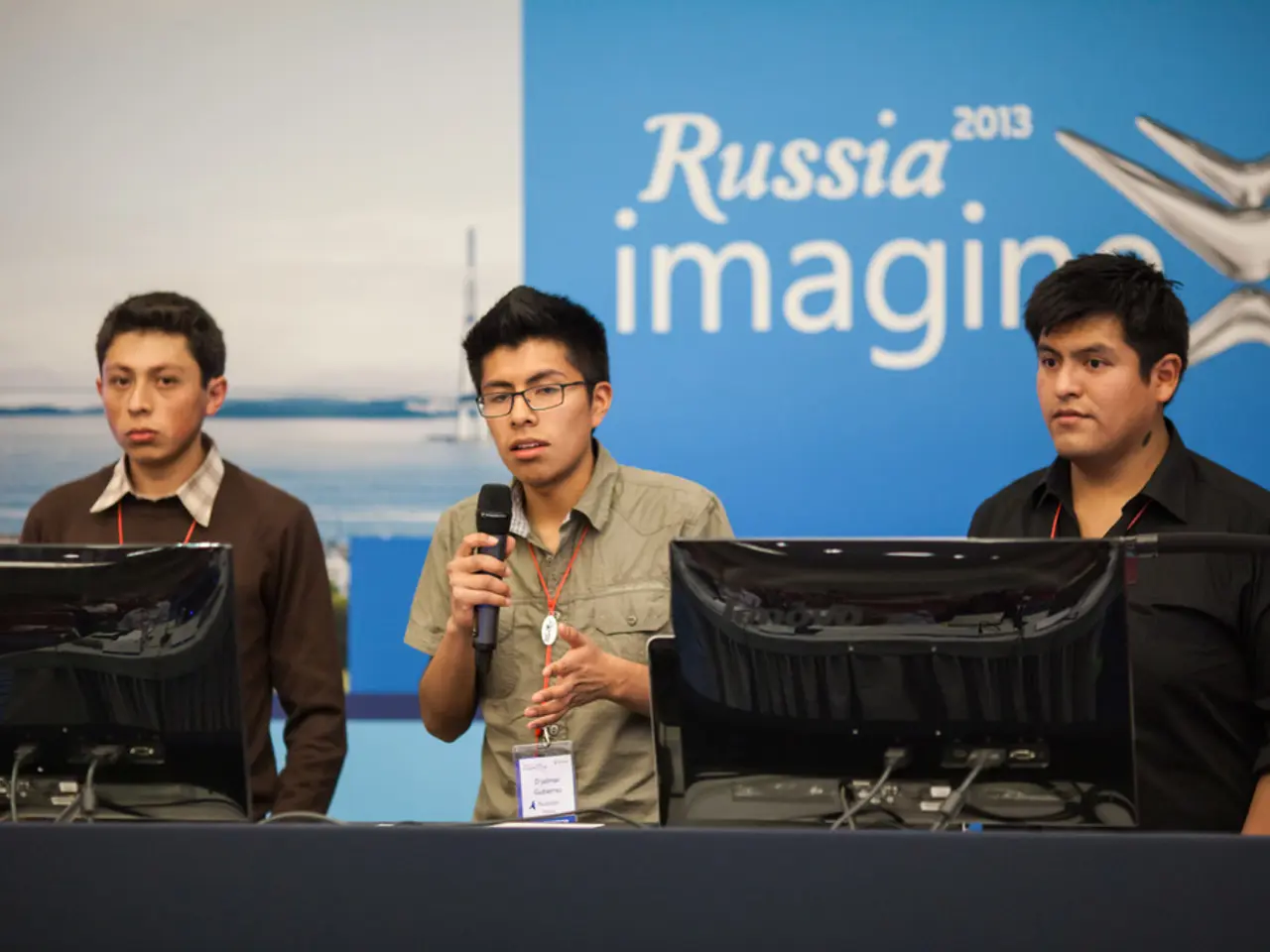International Gathering in Alaska: German Perspectives on Putin's Diplomatic Boost and Absence of Peace Initiatives
The August 2025 Alaska summit between US President Donald Trump and Russian President Vladimir Putin has been met with critical and cautious responses, particularly in regards to the ongoing Ukraine conflict.
A key concern is that no deal or cease-fire was reached, despite Trump's hopes to initiate a cease-fire. Putin refused to agree to any pause in hostilities, continuing military aggression in Ukraine during the summit.
Ukraine was notably absent from the summit, raising concerns about the legitimacy and sustainability of any agreements. This exclusion leaves Ukraine vulnerable and without a direct voice in the negotiations.
European leaders have thanked Trump for his efforts, but have stressed the need to maintain pressure on Russia. They fear that Ukraine may be compelled to make significant concessions without reciprocal commitments from Russia, effectively freeing Putin from international isolation.
Analysts note Putin’s continued use of aggressive military tactics and economic leverage to isolate Ukraine and Europe. Putin's demand for Ukrainian territorial concessions is seen as a non-starter, potentially aimed at shifting blame onto Ukraine for the failure of peace efforts.
Some experts argue that Trump needs to adopt a tougher stance against Putin to achieve a meaningful deal, warning against strategies that mirror Kremlin narratives and undermine Ukraine’s position.
Jürgen Hardt, the foreign policy spokesman of the Union faction, defended European support for the summit, stating that "little was agreed in Anchorage, but much happened." Roderich Kiesewetter, a CDU foreign policy expert, saw the summit as a black day for Ukraine and Europe. Stefan Meister, a Russia expert, described the outcome as "the low point of US diplomacy."
Stefan Meister also expressed concerns that through the recognition of a war criminal as a negotiating partner and the discussion of violations of international law, Trump once again unnecessarily elevated Putin.
In summary, the summit has not changed the dynamics of the Ukraine conflict but has intensified international concerns that without Ukraine’s involvement and continued allied pressure on Russia, progress toward peace is unlikely. The meeting highlighted the challenges of negotiating peace amid ongoing hostilities and divergent strategic aims.
- The summit's failure to address the ongoing Ukraine conflict has raised questions about the effectiveness of US policies regarding war-and-conflicts, particularly in light of Putin's continued military aggression and strategic aims that deviate from those of its allies.
- As the international community expresses concerns over the legitimacy and sustainability of agreements following the Alaska summit, there is a growing call for policy-and-legislation that ensures Ukraine's representation in negotiations and maintains pressure on Russia to prevent further war-and-conflicts and shifts in political power.







